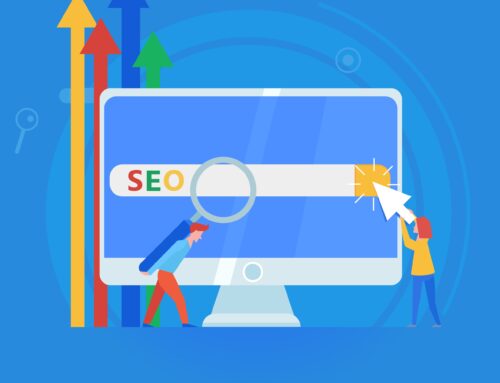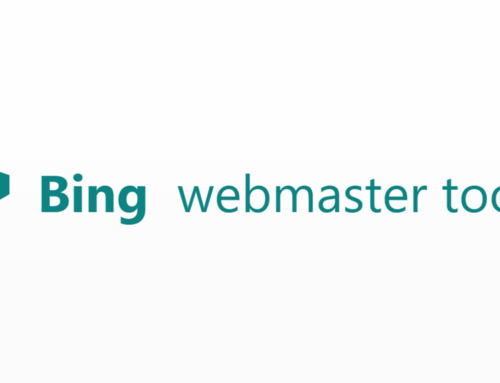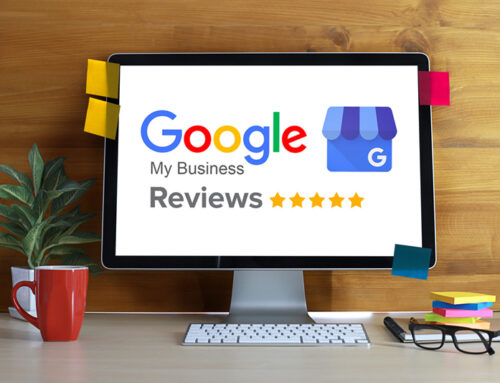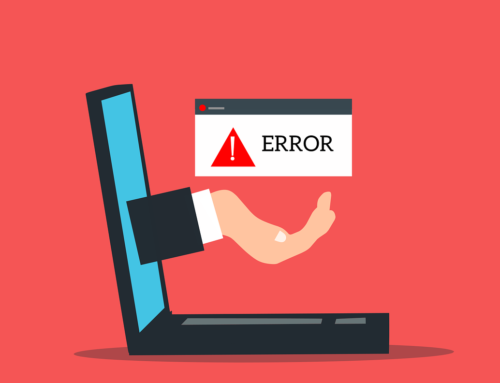Comprehensive Guide to Developing an Effective SEO Strategy
1. Introduction to SEO Strategy
Search engine optimization (SEO) is the practice of optimizing websites to rank higher in search engine results pages (SERPs) and drive more organic traffic. An effective SEO strategy is crucial for businesses aiming to increase their online visibility, attract their target audience, and ultimately drive more conversions and revenue.
As Rand Fishkin, co-founder of Moz, puts it:
“SEO is the marketing bullseye – the center of your digital marketing world, making sure searchers can find you and come to your site from the most high-quality sources sending trillions of targeted visitors across the web.”
The primary goals of an SEO strategy are:
- Increase Visibility: By optimizing your website for relevant keywords and search queries, you can improve your visibility in search results, making it easier for potential customers to find your business.
- Drive Organic Traffic: Higher rankings and visibility in SERPs lead to more organic (non-paid) traffic to your website from search engines, increasing your chances of attracting new customers and leads.
- Improve Rankings: A well-executed SEO strategy helps you outrank your competitors for important keywords and search terms, positioning your business as the go-to solution in your industry.
In summary, an SEO strategy is a comprehensive plan that outlines the tactics and approaches you’ll use to optimize your website and online presence for better search engine visibility, higher rankings, and increased organic traffic.
Key Takeaways:
- SEO is critical for improving online visibility, driving organic traffic, and outranking competitors.
- An SEO strategy is a comprehensive plan outlining tactics for website optimization and search engine visibility.
- Primary goals include increased visibility, organic traffic, and higher rankings for relevant keywords.
2. Keyword Research and Strategy
Keyword research is the foundation of any successful SEO strategy. It involves identifying the words, phrases, and queries that your target audience uses when searching for products, services, or information related to your business.
Understanding Search Intent and User Queries
Before diving into keyword research, it’s essential to understand search intent – the underlying reason behind a user’s search query. There are four main types of search intent:
- Informational: Users are seeking information or answers to their questions (e.g., “what is SEO?”).
- Navigational: Users want to find a specific website or online destination (e.g., “Google Analytics”).
- Transactional: Users are ready to make a purchase or take a specific action (e.g., “buy running shoes online”).
- Commercial Investigation: Users are researching products or services but are not yet ready to buy (e.g., “best SEO tools”).
By understanding search intent, you can align your content and keyword targeting strategies to better match user needs and expectations.
Identifying Target Keywords
There are several methods and tools for identifying relevant target keywords for your SEO strategy:
- Seed Keyword Research: Start with a list of broad, relevant topics related to your business, and use keyword research tools like Google Keyword Planner, Semrush, or Ahrefs to generate more specific keyword ideas.
- Competitor Analysis: Analyze your competitors’ websites and content to identify the keywords they’re targeting, and look for gaps or opportunities to outrank them.
- Customer Insights: Leverage customer feedback, sales queries, and support conversations to uncover the language and terms your audience uses when searching for solutions.
- Content & Search Analytics: Use tools like Google Search Console and Google Analytics to identify the keywords driving traffic to your existing content and look for areas to optimize or expand your content strategy.
Once you have a list of potential target keywords, prioritize them based on factors like search volume, relevance, competition, and intent alignment.
Key Takeaways:
- Keyword research uncovers the terms and phrases your audience uses when searching online.
- Understanding search intent is crucial for aligning your content and keywords with user needs.
- Use a combination of tools, competitor analysis, customer insights, and analytics to identify relevant target keywords.
- Prioritize keywords based on search volume, relevance, competition, and intent alignment.
3. On-Page Optimization Techniques
On-page optimization refers to the practices and techniques used to optimize individual web pages to improve their relevance and visibility in search engine results. It encompasses various elements, including content optimization, technical elements, and website architecture.
Content Optimization for Target Keywords
Content is king in the world of SEO, and optimizing your website’s content for target keywords is crucial. Here are some best practices for content optimization:
- Use Keywords Naturally: Incorporate your target keywords into your content in a natural, readable way. Avoid keyword stuffing, which can hurt your rankings and user experience.
- Optimize Page Titles and Headings: Include your target keywords in page titles (wrapped in an
<h1>tag) and subheadings (using<h2>to<h6>tags). This helps search engines understand the topic and structure of your content. - Write Unique, High-Quality Content: Create valuable, informative, and engaging content that provides a great user experience. Search engines prioritize high-quality, unique content over thin or duplicated content.
- Use Semantically Related Keywords: Incorporate semantically related words and phrases that reinforce the topic and context of your content. This helps search engines better understand the relevance of your pages.
- Optimize Content Length: While there’s no perfect content length, longer-form content (1,000+ words) tends to perform better in search results, as it allows you to cover topics in greater depth.
Technical Elements Optimization
In addition to content optimization, there are several technical elements that play a crucial role in on-page SEO:
- Title Tags: The title tag, or
<title>element, is one of the most important on-page factors for SEO. It should accurately describe the content of the page and include the target keyword. - Meta Descriptions: Although not a direct ranking factor, meta descriptions can influence click-through rates from SERPs. Craft compelling, keyword-rich descriptions (155-160 characters) that entice users to click through to your pages.
- Headings and Subheadings: Use descriptive, keyword-rich headings and subheadings (
<h1>,<h2>, etc.) to structure your content and reinforce relevance to search engines. - Image Optimization: Optimize images by using descriptive filenames, alt text, and appropriate formatting (JPEG, PNG, or next-gen formats like WebP) to improve load times and accessibility.
- Internal Linking: Implement a strategic internal linking structure to help search engines understand the relationship and hierarchy between your website’s pages, and distribute PageRank efficiently.
Key Takeaways:
- On-page optimization encompasses content optimization and technical elements like titles, meta descriptions, headings, images, and internal linking.
- Create high-quality, unique, keyword-optimized content that provides value to users.
- Optimize technical elements like titles, meta descriptions, and headings for relevance and user experience.
- Implement a strategic internal linking structure to help search engines understand your website’s architecture and content hierarchy.
4. Off-Page Optimization and Link Building
Off-page optimization refers to the techniques and strategies employed outside of your website to improve its authority, reputation, and rankings in search engines. One of the most critical aspects of off-page optimization is link building – the process of acquiring high-quality backlinks from other reputable websites.
The Importance of Backlinks
Backlinks, or inbound links, are essentially votes of confidence from other websites. Search engines like Google consider backlinks as signals of a website’s authority, trustworthiness, and relevance. The more high-quality backlinks a website has, the higher it is likely to rank for its target keywords.
As Cyrus Shepard, former SEO leader at Moz, states:
“Backlinks are the foundation of Google’s ranking algorithm. They remain one of the top few ranking factors and are a prime way the search engines determine the authority of a site.”
However, not all backlinks are created equal. Search engines place a higher value on backlinks from authoritative, relevant, and trustworthy websites within your industry or niche.
Link Acquisition and Outreach Strategies
There are various strategies for acquiring high-quality backlinks:
- Content Marketing and Promotion: Create exceptional, shareable content that naturally attracts backlinks from other sites and influencers in your industry.
- Guest Posting: Contribute guest posts or articles to reputable websites within your niche, including a contextual backlink to your site.
- Broken Link Building: Identify broken links on authoritative websites and suggest replacing them with links to your relevant, high-quality content.
- Resource Page Link Building: Reach out to websites that maintain resource pages or link directories and request to be listed as a valuable resource.
- Influencer Outreach: Collaborate with industry influencers, experts, or thought leaders and leverage their authority and audience to acquire backlinks.
- Competitor Backlink Analysis: Use tools like Ahrefs, Semrush, or Moz Link Explorer to analyze your competitors’ backlink profiles and identify opportunities to acquire similar high-quality links.
It’s important to note that any attempts at manipulative or unethical link building practices, such as participating in link schemes or buying links, can result in penalties from search engines.
Building Topical Authority and E-A-T
Beyond just acquiring backlinks, off-page optimization also involves building topical authority and demonstrating expertise, authoritativeness, and trustworthiness (E-A-T) in your industry or niche. This can be achieved through various methods, such as:
- Participating in industry forums, communities, and online discussions
- Contributing to authoritative publications or websites as a subject matter expert
- Building a strong social media presence and engaging with your audience
- Obtaining mentions, reviews, or features from reputable sources within your industry
By establishing your brand and website as a trusted, authoritative source within your niche, you not only improve your off-page optimization efforts but also enhance your overall online reputation and credibility.
Key Takeaways:
- Off-page optimization and link building are crucial for improving a website’s authority, reputation, and search engine rankings.
- High-quality, relevant backlinks act as votes of confidence and are a significant ranking factor for search engines.
- Implement strategies like content marketing, guest posting, broken link building, and influencer outreach to acquire high-quality backlinks.
- Building topical authority and demonstrating expertise, authoritativeness, and trustworthiness (E-A-T) is essential for off-page optimization success.
5. Technical SEO Foundations
Technical SEO refers to the practices and techniques used to optimize a website’s underlying infrastructure, architecture, and code to ensure search engine crawlers can effectively access, crawl, and index the site’s content. A solid technical SEO foundation is crucial for maximizing a website’s visibility, rankings, and overall search engine performance.
Website Crawlability and Indexability
Search engines like Google rely on web crawlers (also known as spiders or bots) to discover and index web pages. Ensuring that your website is easily crawlable and indexable is essential for SEO success. Here are some key technical SEO considerations:
- XML Sitemaps: Create and submit an XML sitemap to search engines, providing a roadmap of your website’s pages and content, making it easier for crawlers to discover and index them.
- Robots.txt File: The robots.txt file instructs search engine crawlers which pages or directories to crawl or ignore, helping to manage the crawl budget and prevent indexing of unnecessary pages.
- URL Structure: Implement a clean, user-friendly, and SEO-friendly URL structure that includes relevant keywords and makes it easy for both users and search engines to understand the content hierarchy.
- Duplicate Content: Identify and address any instances of duplicate content, which can confuse search engines and dilute the authority of your pages. Use canonical tags or URL parameters to specify the preferred version of a page.
- Mobile-Friendliness: With the increasing prevalence of mobile search, it’s crucial to ensure your website is mobile-friendly and provides a seamless user experience across all devices.
Site Speed Optimization
Site speed, or page load time, is a critical factor for both user experience and search engine rankings. Slow-loading websites not only frustrate users but also risk being penalized by search engines. Here are some site speed optimization techniques:
- Image Optimization: Compress and optimize images to reduce file sizes without sacrificing quality, which can significantly improve page load times.
- Minify HTML, CSS, and JavaScript: Remove unnecessary code, whitespace, and comments from your website’s files to reduce their size and improve load times.
- Use a Content Delivery Network (CDN): A CDN distributes your website’s content across multiple servers worldwide, ensuring faster delivery to users based on their geographic location.
- Leverage Browser Caching: Configure your server to cache static resources like CSS, JavaScript, and image files, reducing the need for repeated downloads on subsequent page visits.
- Implement Lazy Loading: Lazy loading defers the loading of non-critical resources (e.g., images below the fold) until they’re needed, improving initial page load times.
Structured Data and SERP Features
Structured data, in the form of schema markup, provides additional context and information about your website’s content to search engines. Implementing structured data can increase your chances of appearing in rich search results, such as featured snippets, knowledge panels, and carousels, improving visibility and click-through rates.
Key Takeaways:
- Technical SEO focuses on optimizing a website’s infrastructure, architecture, and code for search engine crawlability and indexability.
- Ensure your website is easily crawlable and indexable by using XML sitemaps, robots.txt files, and a clean URL structure.
- Optimize site speed by compressing images, minifying code, using a CDN, leveraging browser caching, and implementing lazy loading.
- Implement structured data (schema markup) to increase your chances of appearing in rich search results and SERP features.
6. Content Strategy for SEO
Content lies at the heart of any successful SEO strategy. Search engines prioritize high-quality, relevant, and engaging content that provides value to users. A well-planned content strategy can help you attract and retain your target audience, establish topical authority, and drive organic traffic to your website.
Content Formats and Types
There are various content formats and types that can be leveraged as part of your SEO content strategy:
- Website Pages: Optimize key pages like your homepage, product/service pages, and about page with targeted keywords, compelling copy, and relevant multimedia elements.
- Blog Posts: Consistently publishing high-quality blog content on topics relevant to your industry or target audience can help you rank for long-tail keywords and establish thought leadership.
- Pillar Pages and Topic Clusters: Pillar pages are comprehensive, in-depth resources that cover a broad topic or theme. They act as content hubs, linking to more specific, supporting content (known as topic clusters), creating a strong internal linking structure and reinforcing topical authority.
- Ebooks and Whitepapers: Gated, premium content like ebooks and whitepapers can be used to capture leads while providing valuable information to your target audience.
- Videos and Podcasts: Diversifying your content with video and audio formats can help you reach new audiences, improve engagement, and rank in different search verticals like YouTube and podcast directories.
- Infographics and Visual Content: Visually appealing and shareable content like infographics, charts, and diagrams can help you attract backlinks and social shares, boosting your off-page SEO efforts.
Optimizing for Featured Snippets and Voice Search
As search technologies evolve, optimizing your content for featured snippets and voice search becomes increasingly important. Featured snippets are the concise excerpts that appear at the top of search results, providing direct answers to users’ queries.
To increase your chances of capturing featured snippets, structure your content in a clear, concise, and easily digestible format, using headings, lists, tables, and other formatting techniques that facilitate snippet extraction.
Voice search optimization involves targeting conversational, long-tail keywords and phrases that users are likely to speak when using voice assistants like Siri, Alexa, or Google Assistant. Incorporate natural language and frequently asked questions into your content to align with voice search queries.
Content Pruning and Optimization
As part of your content strategy, it’s essential to periodically audit your existing content and identify opportunities for pruning or optimization. This may involve:
- Removing or updating outdated, irrelevant, or low-quality content: Thin, duplicate, or low-performing content can hurt your SEO efforts and should be removed or consolidated with higher-quality, more relevant content.
- Updating and refreshing evergreen content: Regularly updating and refreshing your evergreen content can help maintain its relevance, improve its performance in search results, and potentially attract new backlinks.
- Consolidating and optimizing content for topical relevance: If you have multiple pages or pieces of content targeting similar topics or keywords, consider consolidating them into a comprehensive, optimized resource to improve topical authority and avoid keyword cannibalization.
By regularly pruning, updating, and optimizing your content, you can ensure that your website remains a valuable, authoritative resource for your target audience, while improving your overall SEO performance.
Key Takeaways:
- Develop a content strategy that incorporates various formats and types, such as website pages, blog posts, pillar content, ebooks, videos, and infographics.
- Optimize content for featured snippets by using clear, concise formatting and voice search by targeting conversational, long-tail keywords.
- Regularly audit and prune your existing content, removing or updating outdated or low-quality content, and consolidating for topical relevance.
7. Tracking and Measurement
Tracking and measuring the performance of your SEO efforts is crucial for understanding the effectiveness of your strategy, identifying areas for improvement, and making data-driven decisions. By monitoring key metrics and leveraging powerful analytics tools, you can gain valuable insights and continually optimize your approach.
Key SEO Metrics to Track
There are several important metrics that you should track and analyze as part of your SEO strategy:
- Organic Traffic: Monitor the number of visitors coming to your website from organic (non-paid) search engine results. Increases in organic traffic can indicate the success of your SEO efforts.
- Keyword Rankings: Track your website’s rankings for important target keywords across different search engines and locations. Improvements in rankings often correlate with increased organic traffic and visibility.
- Click-Through Rate (CTR): The percentage of users who click through to your website from the search engine results pages (SERPs). Higher CTRs can indicate compelling meta titles and descriptions.
- Bounce Rate: The percentage of visitors who leave your website after viewing only one page. A high bounce rate may suggest issues with content relevance, user experience, or page load times.
- Conversion Rate: The percentage of visitors who complete a desired action, such as making a purchase, filling out a form, or subscribing to a newsletter. Tracking conversions helps you measure the business impact of your SEO efforts.
- Backlink Profile: Monitor the quantity and quality of backlinks pointing to your website over time. A growing number of high-quality backlinks can indicate improved authority and off-page optimization success.
SEO Analytics Tools
To effectively track and measure these metrics, you’ll need to leverage powerful analytics tools:
- Google Analytics: This free, comprehensive platform provides detailed insights into your website’s traffic sources, user behavior, engagement, and conversions.
- Google Search Console: Formerly known as Google Webmaster Tools, Search Console offers valuable data on your website’s search performance, including keyword rankings, indexing status, and search appearance.
- Rank Tracking Tools: Specialized rank tracking tools like Semrush, Ahrefs, and Moz Pro allow you to monitor your keyword rankings across different search engines and locations with greater granularity.
- Link Analysis Tools: Tools like Ahrefs, Semrush, and Moz Link Explorer provide in-depth analysis of your backlink profile, helping you identify new link opportunities and monitor your off-page optimization efforts.
By regularly analyzing and interpreting these metrics within your chosen analytics tools, you can gain valuable insights into the performance of your SEO strategy and make informed decisions to drive continuous improvement.
Conversion Rate Optimization (CRO)
While SEO is primarily focused on driving organic traffic to your website, it’s essential to consider the user experience and conversion funnel once visitors arrive. Conversion rate optimization (CRO) techniques can help ensure that your website is optimized for conversions, maximizing the return on your SEO investments.
CRO involves testing and optimizing various elements of your website, such as calls-to-action (CTAs), form fields, checkout processes, and landing page layouts, to improve conversion rates. By leveraging tools like heat maps, user recordings, and A/B testing platforms, you can identify and address friction points in the user journey, ultimately leading to higher conversion rates and a better return on your SEO efforts.
Key Takeaways:
- Track key SEO metrics like organic traffic, keyword rankings, CTR, bounce rate, conversion rate, and backlink profile to measure your strategy’s performance.
- Leverage analytics tools like Google Analytics, Google Search Console, rank tracking tools, and link analysis tools to monitor and analyze your metrics.
- Implement conversion rate optimization (CRO) techniques to improve the user experience and conversion funnel, maximizing the impact of your SEO efforts.
8. Local SEO Strategies
For businesses that operate within a specific geographic area or serve local customers, implementing an effective local SEO strategy is crucial. Local SEO involves optimizing your online presence to rank higher in location-based searches, making it easier for nearby customers to find your business.
Google Business Profile (Formerly Google My Business)
One of the most important components of local SEO is optimizing your Google Business Profile (GBP), formerly known as Google My Business (GMB). This free listing allows you to manage how your business appears in Google Search and Maps, providing essential information like your business name, address, phone number, hours of operation, and customer reviews.
To optimize your GBP, follow these best practices:
- Claim and Verify Your Listing: Start by claiming and verifying your business listing on Google. This process ensures that you have full control over your GBP and can manage its information accurately.
- Complete Your Profile: Provide complete and accurate information about your business, including your business category, attributes, service areas, and opening hours. This helps Google better understand your business and match it with relevant local searches.
- Add Photos and Videos: Enhance your GBP with high-quality photos and videos showcasing your products, services, team, and physical location. Visual content can significantly improve click-through rates and engagement.
- Encourage and Respond to Reviews: Positive reviews can significantly impact your local search visibility. Encourage satisfied customers to leave reviews on your GBP, and be sure to respond professionally to both positive and negative reviews.
- Post Regular Updates: Utilize the “Posts” feature to share updates, promotions, events, or any other relevant information about your business. Regular posting can improve engagement and visibility in local search results.
Local Directory Listings and Citations
In addition to your GBP, it’s essential to ensure that your business is consistently listed across other popular online directories and citation sources. These listings serve as citations, signaling to search engines the credibility and legitimacy of your business information.
Some key local directories and citation sources to focus on include:
- Major data aggregators (e.g., Acxiom, Neustar Localeze, Factual)
- Industry-specific directories (e.g., Yelp, TripAdvisor, Angie’s List)
- Local or regional directories (e.g., city guides, chamber of commerce listings)
- Mobile apps and voice assistants (e.g., Apple Maps, Alexa, Siri)
Consistency is crucial when managing your local citations. Ensure that your business name, address, phone number (NAP), and other key details are accurately and consistently listed across all directories and citation sources.
Local Link Building and Content Optimization
In addition to optimizing your GBP and local citations, you should also focus on building high-quality local backlinks and creating location-specific content. Local link building can involve tactics such as:
- Partnering with local bloggers, influencers, or media outlets
- Sponsoring or participating in local events or community initiatives
- Creating local resource pages or guides
- Obtaining mentions and links from local business directories or associations
When it comes to content optimization, consider creating location-specific pages, blog posts, or multimedia content that targets local keywords and addresses the needs and interests of your local audience.
Key Takeaways:
- Optimize your Google Business Profile (GBP) with accurate business information, visuals, reviews, and regular updates to improve local search visibility.
- Ensure consistent business listings and citations across major data aggregators, industry-specific directories, and local/regional sources.
- Implement local link building tactics and create location-specific content to strengthen your local SEO efforts.
9. Advanced SEO Tactics
As you progress in your SEO journey, it’s important to stay up-to-date with the latest trends and techniques to maintain a competitive edge. In this section, we’ll explore some advanced SEO tactics that can take your strategy to the next level.
Video SEO and YouTube Optimization
Video content has become increasingly popular and influential in the digital landscape, with platforms like YouTube serving as powerful search engines in their own right. Optimizing your video content for search engines can help you reach new audiences and drive additional traffic to your website.
Here are some key video SEO tactics:
- YouTube Optimization: Optimize your YouTube channel and video metadata (titles, descriptions, tags) with relevant keywords. Encourage user engagement through calls-to-action, playlists, and end screens to improve watch time and retention.
- Video Transcripts and Closed Captions: Provide transcripts and closed captions for your videos to make them more accessible and searchable. Search engines can crawl and index this text, helping your videos rank for relevant keywords.
- Video Sitemaps: Create and submit a dedicated video sitemap to search engines, providing them with structured data about your video content and facilitating better indexing and ranking.
- Video Schema Markup: Implement schema markup for your video content to enhance rich snippet appearances in search results, including video thumbnails, duration, and other metadata.
- Video Hosting and Embedding: Host your videos on reputable platforms like YouTube or Vimeo, and embed them on relevant pages of your website. This can improve user engagement, dwell time, and the overall authority of those pages.
Page Speed Optimization and Core Web Vitals
As user expectations for fast and seamless online experiences continue to rise, page speed has become an increasingly important ranking factor for search engines. Google’s Core Web Vitals initiative measures and prioritizes key user experience metrics, including:
- Largest Contentful Paint (LCP): Measures the loading performance of the main content on a page, aiming for a target of 2.5 seconds or faster.
- First Input Delay (FID): Measures the responsiveness of a page to user interactions, with a target of less than 100 milliseconds.
- Cumulative Layout Shift (CLS): Measures visual stability and the absence of unexpected layout shifts, aiming for a score of less than 0.1.
To optimize for page speed and Core Web Vitals, consider implementing techniques such as:
- Minifying and compressing code (HTML, CSS, JavaScript)
- Optimizing and lazy-loading images and multimedia
- Leveraging browser caching and Content Delivery Networks (CDNs)
- Implementing code-splitting and server-side rendering for JavaScript applications
- Monitoring and addressing performance bottlenecks using tools like PageSpeed Insights, WebPageTest, and Lighthouse.
E-commerce SEO
For businesses operating in the e-commerce space, optimizing product pages and category pages for search engines is crucial for driving organic traffic and sales. Here are some key e-commerce SEO tactics:
- Keyword-Optimized Product Titles and Descriptions: Incorporate relevant keywords into your product titles, descriptions, and metadata in a natural and user-friendly manner.
- Product Schema Markup: Implement structured data markup for products, including information like pricing, availability, reviews, and ratings, to enhance rich snippet appearances in search results.
- User-Generated Content (UGC): Encourage and leverage user-generated content, such as product reviews and ratings, to add value and fresh content to your product pages.
- Internal Linking and Breadcrumb Navigation: Implement a logical internal linking structure and breadcrumb navigation to help search engines understand the relationship between your category and product pages.
- Faceted Navigation Optimization: Optimize your faceted navigation systems (filters, sorting options, etc.) to ensure that search engines can crawl and index all possible product variations and combinations.
Key Takeaways:
- Optimize video content for platforms like YouTube, leveraging techniques like video metadata optimization, transcripts, sitemaps, and schema markup.
- Focus on page speed optimization and meeting Google’s Core Web Vitals standards for a better user experience and potential ranking boost.
- For e-commerce websites, optimize product pages with relevant keywords, schema markup, user-generated content, internal linking, and faceted navigation.
10. SEO vs Other Channels
While SEO is a powerful marketing channel in its own right, it’s important to recognize that it doesn’t operate in isolation. To achieve optimal results, it’s often beneficial to integrate SEO with other digital marketing channels and tactics.
Combining SEO with SEM/PPC
Search engine marketing (SEM), also known as pay-per-click (PPC) advertising, can be an effective complement to your SEO efforts. By running targeted PPC campaigns, you can drive immediate traffic to your website while your organic SEO efforts take time to mature.
Additionally, PPC data can provide valuable insights into user search behavior, keyword performance, and audience targeting, which can inform and refine your SEO strategy. For example, you can use high-performing PPC keywords and ad copy as inspiration for optimizing your organic content and metadata.
Conversely, a strong organic presence can enhance the effectiveness of your PPC campaigns by increasing brand awareness and credibility, potentially leading to higher click-through rates and lower cost-per-click.
Leveraging Paid Channels for SEO
While paid channels like PPC, social media advertising, and influencer marketing primarily drive direct traffic, they can also indirectly support your SEO efforts in several ways:
- Remarketing for SEO: Remarketing campaigns can help re-engage visitors who initially arrived at your website through organic search, potentially leading to conversions and improved engagement metrics like dwell time and bounce rate.
- Paid Social for Link Building: Sponsored social media posts and influencer collaborations can help amplify your content and potentially attract high-quality backlinks from industry influencers and authoritative sources.
- Content Promotion and Amplification: Paid promotion and distribution of your content assets (e.g., whitepapers, ebooks, webinars) can drive initial engagement and generate social signals that may positively impact organic visibility.
- Brand Awareness and Reputation: Paid campaigns aimed at increasing brand awareness and fostering a positive brand reputation can indirectly support your SEO efforts by enhancing overall online authority and trustworthiness.
Integrating with Email and Content Marketing
Email marketing and content marketing are two channels that can seamlessly integrate with your SEO strategy:
- Email Nurturing for SEO Leads: For leads generated through organic search, implement email nurturing campaigns to continue engaging with these prospects, providing valuable content, and ultimately guiding them toward conversion.
- Content Repurposing and Promotion: Repurpose and distribute your high-performing organic content assets (blog posts, guides, videos) through email newsletters and content syndication channels to maximize their reach and potential for attracting backlinks.
- Subscriber Data for Audience Insights: Leverage subscriber data and engagement metrics from your email marketing campaigns to gain deeper insights into your target audience’s interests and content preferences, informing your content strategy and keyword targeting for SEO.
By adopting an integrated, multi-channel approach that combines SEO with other digital marketing tactics, you can maximize the impact of your efforts, drive sustainable growth, and achieve your overall marketing and business objectives more effectively.
Key Takeaways:
- Combine SEO with SEM/PPC for immediate visibility and audience insights to inform your organic strategy.
- Leverage paid channels like PPC, social media, and influencer marketing to support SEO through remarketing, content promotion, and brand building.
- Integrate SEO with email marketing and content marketing for lead nurturing, content distribution, and audience insights.
- Adopt a multi-channel approach that combines the strengths of various digital marketing channels to maximize impact and achieve your overall business objectives.
11. Building an SEO Strategy
Developing and executing an effective SEO strategy requires careful planning, resources, and a commitment to ongoing optimization and adaptation. In this section, we’ll explore the key considerations and steps involved in building a successful SEO strategy.
Conducting an SEO Audit
Before embarking on a new SEO strategy, it’s crucial to assess your current website’s performance and identify areas for improvement. An SEO audit involves a comprehensive evaluation of various on-page, off-page, and technical SEO factors, including:
- Content analysis and optimization opportunities
- Keyword rankings and search visibility
- Website architecture and technical issues
- Backlink profile and authority
- User experience and engagement metrics
- Compliance with search engine guidelines and best practices
By conducting a thorough SEO audit, you can establish a baseline understanding of your website’s strengths, weaknesses, and opportunities, informing the development of your SEO strategy and prioritizing your optimization efforts.
Developing a Strategy Roadmap
Based on the insights gained from your SEO audit, you can develop a comprehensive roadmap outlining your SEO strategy and implementation plan. This roadmap should include:
- Clearly defined objectives and KPIs: Establish measurable goals for your SEO efforts, such as increasing organic traffic, improving keyword rankings, or driving more conversions from organic search.
- Target audience and persona development: Develop detailed profiles of your target audience segments, including their search behaviors, pain points, and content preferences.
- Keyword research and mapping: Conduct thorough keyword research and map your target keywords to specific content assets and website pages.
- Content strategy and calendar: Plan out your content creation, optimization, and promotion efforts, including blog posts, pillar pages, multimedia assets, and other content types.
- Technical SEO roadmap: Outline the technical optimizations required to improve website crawlability, indexability, speed, and overall search engine friendliness.
- Link building and off-page SEO plan: Develop a strategy for acquiring high-quality backlinks through tactics like content outreach, guest posting, and influencer collaborations.
- Analytics and reporting framework: Establish a framework for tracking, measuring, and reporting on your SEO performance, including key metrics, tools, and reporting cadence.
- Resource allocation and budget: Determine the necessary resources (personnel, tools, budget) required to execute your SEO strategy effectively.
By developing a comprehensive roadmap, you can ensure that your SEO efforts are aligned with your business objectives, prioritize your activities, and establish a clear path for implementation and continuous improvement.
In-House vs. Agency or Consultant
When it comes to executing your SEO strategy, you have the option of managing the efforts in-house or partnering with an external agency or consultant. Both approaches have their advantages and considerations:
In-House SEO:
- Allows for greater control and oversight of the SEO process
- Fosters deep understanding of your business, industry, and target audience
- Enables seamless collaboration and integration with other internal teams
- Requires dedicated in-house resources and expertise
Agency or Consultant:
- Provides access to specialized SEO expertise and experience
- Offers an outside perspective and fresh insights
- Allows you to scale resources as needed without hiring additional full-time staff
- Requires effective communication, collaboration, and project management
Ultimately, the decision between an in-house or outsourced approach will depend on factors such as your budget, internal resources and expertise, the complexity of your SEO needs, and your long-term strategic goals.
Key Takeaways:
- Conduct a comprehensive SEO audit to establish a baseline and identify areas for improvement.
- Develop a detailed SEO strategy roadmap outlining your objectives, target audience, keyword strategy, content plan, technical optimizations, link building, analytics, and resource allocation.
- Evaluate whether an in-house or agency/consultant approach is more suitable for executing your SEO strategy based on your specific needs and resources.
- Ensure effective communication, collaboration, and project management, regardless of the approach you choose.
12. Emerging SEO Trends and The Future
The field of SEO is constantly evolving, driven by advancements in technology, changes in user behavior, and updates to search engine algorithms. To stay ahead of the curve, it’s essential to keep an eye on emerging trends and anticipate the future direction of SEO.
AI Content Generation
Artificial Intelligence (AI) and natural language processing (NLP) technologies have made significant strides in recent years, enabling the generation of human-like text content. While AI-generated content can be a valuable tool for ideation, research, and content creation assistance, it also raises concerns about originality, quality, and potential misuse.
Search engines like Google have taken a firm stance against AI content that lacks originality, substance, and value. In the future, we can expect search algorithms to become more adept at detecting and penalizing low-quality, AI-generated content that primarily serves to manipulate rankings.
However, AI writing assistants can still be useful for tasks like:
- Generating content outlines and drafts for human editing and enhancement
- Automating the creation of data-driven content (e.g., product descriptions, reports)
- Personalization and dynamic content generation based on user behavior and context
The key is to strike a balance between leveraging AI capabilities and maintaining a human touch, focusing on creating high-quality, original, and valuable content for your audience.
Automation and MarTech Stacks
As the digital marketing landscape becomes increasingly complex, the adoption of marketing automation tools and integrated MarTech (Marketing Technology) stacks is on the rise. These platforms and technologies can streamline and automate various aspects of your SEO strategy, from content creation and distribution to backlink monitoring, rank tracking, and reporting.
By integrating your SEO efforts with other marketing channels and technologies, you can achieve greater efficiency, consistency, and data-driven decision-making. For example, you can:
- Automate content creation workflows and optimize distribution across multiple channels
- Leverage customer data and behavior insights to personalize content and optimize for search intent
- Integrate SEO data with other marketing analytics for a holistic view of campaign performance
However, it’s important to maintain a balance between automation and human oversight, ensuring that your strategies remain aligned with your brand voice, values, and overall marketing objectives.
Core Algorithm Updates and Helpful Content
Search engines like Google are continuously refining their algorithms to better understand and prioritize high-quality, helpful content that provides value to users. Recent updates like the Helpful Content Update underscore the importance of creating people-first content that focuses on addressing user needs, rather than solely optimizing for search engines.
In the future, we can expect search algorithms to become even more sophisticated in detecting and rewarding content that demonstrates expertise, authoritativeness, and trustworthiness (E-A-T). This may involve a greater emphasis on factors such as:
- Author credentials and reputation
- Content quality and depth
- Factual accuracy and transparency
- User engagement and satisfaction signals
To stay ahead of these algorithm changes, it’s crucial to prioritize the creation of genuinely helpful, informative, and well-researched content that provides value to your target audience.
The Impact of New Technologies
The rapid advancement of technologies like Web3, the metaverse, and augmented reality (AR) will likely shape the future of SEO and digital marketing. As these technologies gain mainstream adoption, new search paradigms and user behaviors will emerge, requiring SEO strategies to adapt accordingly.
For example, in the metaverse, users may interact with digital environments, virtual reality (VR) experiences, and immersive content in new ways. This could lead to the rise of “spatial SEO” or “metaverse SEO,” where optimizing for discoverability within these virtual spaces becomes crucial.
Similarly, the growth of Web3 and decentralized technologies may introduce new challenges and opportunities for SEO, such as optimizing for decentralized search engines, incorporating blockchain-based identities and reputations, and leveraging non-fungible tokens (NFTs) for content distribution and monetization.
To stay ahead of these emerging trends, it’s important to maintain an open and adaptive mindset, continuously learning and experimenting with new technologies and their potential impact on your SEO strategy.
Key Takeaways:
- Leverage AI content generation capabilities judiciously, focusing on creating high-quality, original, and valuable content for your audience.
- Integrate your SEO efforts with marketing automation and MarTech stacks for greater efficiency, consistency, and data-driven decision-making.
- Prioritize creating genuinely helpful, informative, and well-researched content that aligns with search engine principles of rewarding quality and value.
- Stay vigilant about emerging technologies like Web3, the metaverse, and AR, and adapt your SEO strategies accordingly as new search paradigms and user behaviors emerge.
13. Resources for Learning SEO
Mastering SEO is an ongoing journey that requires continuous learning and adaptation. Whether you’re a beginner or an experienced SEO professional, staying up-to-date with the latest trends, techniques, and best practices is crucial for success. In this section, we’ll explore various resources that can help you deepen your SEO knowledge and skills.
Online Courses and Certifications
Online courses and certifications can provide a structured learning path and valuable credentials to enhance your SEO expertise:
- Google Digital Garage Courses: Google offers a range of free online courses through its Digital Garage platform, covering topics like SEO fundamentals, content strategy, and analytics.
- Semrush Academy: Semrush, a leading SEO and digital marketing platform, offers a comprehensive SEO Toolkit Course, as well as specialized courses on topics like technical SEO and content marketing.
- Moz Academy: Moz, a pioneer in the SEO industry, provides in-depth training courses and certifications covering various aspects of SEO, from keyword research to link building and analytics.
- HubSpot SEO Certification: HubSpot’s SEO Certification course covers essential SEO concepts, strategies, and best practices for optimizing websites and content for search engines.
- Udemy and Coursera: Online learning platforms like Udemy and Coursera offer a wide range of SEO courses taught by industry experts, providing flexible and affordable learning options.
Industry Blogs and Publications
Staying up-to-date with the latest SEO news, trends, and insights is crucial. Regularly reading industry blogs and publications can help you stay informed and inspired:
- Search Engine Land: A leading publication dedicated to search marketing news, analysis, and opinion pieces.
- Moz Blog: The official blog from Moz, offering valuable insights and tutorials on various SEO topics.
- Search Engine Journal: A comprehensive resource for SEO and digital marketing news, guides, and case studies.
- Ahrefs Blog: The Ahrefs blog covers a wide range of SEO topics, including technical SEO, link building, and content marketing.
- SEMrush Blog: SEMrush’s blog provides valuable insights and data-driven strategies for SEO, PPC, and digital marketing.
Podcasts and Webinars
Podcasts and webinars offer convenient and engaging ways to learn from SEO experts and stay updated on the latest industry developments:
- The SEO 101 Podcast: Hosted by Ross Tavendale, this podcast covers SEO fundamentals and advanced topics in a digestible format.
- Search Off the Record: A popular podcast by Napkyn Analytics, featuring interviews with SEO professionals and discussions on industry trends.
- Search Engine Nerds: A weekly podcast by Searchmetrics, covering various aspects of SEO, content marketing, and digital marketing.
- BrightEdge Webinars: BrightEdge, a leading SEO and content performance platform, hosts regular webinars on various SEO-related topics.
- Semrush Webinars: Semrush offers a wide range of webinars and masterclasses covering SEO, PPC, content marketing, and more.
Conferences and Meetups
Attending SEO conferences and local meetups can be a great way to learn from industry experts, network with fellow professionals, and stay informed about the latest trends and best practices:
- Brighton SEO: One of the world’s largest SEO conferences, held annually in Brighton, UK.
- MozCon: Moz’s annual conference, featuring talks and workshops from industry leaders and SEO experts.
- SMX (Search Marketing Expo): A series of well-regarded search marketing conferences held in various cities worldwide.
- LocalU Advanced SEO Workshop: A hands-on, in-depth SEO training workshop hosted by Local University.
- Local SEO Meetups: Many cities have active local SEO meetup groups where professionals gather to network and share knowledge.
By leveraging these various learning resources, you can continuously expand your SEO knowledge, stay informed about the latest industry developments, and position yourself as a valuable SEO professional.
Key Takeaways:
- Explore online courses and certifications from reputable providers like Google, Semrush, Moz, and HubSpot to build your SEO skills.
- Follow industry blogs and publications like Search Engine Land, Moz Blog, and Ahrefs Blog to stay updated on the latest SEO news and insights.
- Listen to podcasts and attend webinars from industry leaders and experts to learn about emerging trends and best practices.
- Participate in SEO conferences and local meetups to network with fellow professionals and gain hands-on knowledge from industry experts.
- Continuously invest in learning and professional development to stay ahead in the ever-evolving field of SEO.
14. FAQ (Frequently Asked Questions)
- What is the difference between SEO and PPC?SEO (Search Engine Optimization) focuses on optimizing your website and content to rank higher in organic (non-paid) search engine results, while PPC (Pay-Per-Click) advertising involves running paid campaigns where you pay each time someone clicks on your ad. SEO aims for long-term, sustainable visibility, while PPC provides immediate visibility in search results.
- How long does it take to see results from SEO strategies?The timeframe for seeing results from SEO efforts can vary greatly depending on factors such as the competitiveness of your industry, the age and authority of your website, and the scope of your optimization efforts. Generally, you can expect to see initial results within 3-6 months, with more significant results taking 6-12 months or longer.
- Can I do SEO on my own, or do I need to hire an agency?While it’s possible to implement basic SEO techniques on your own, working with an experienced SEO agency or consultant can provide access to specialized expertise, tools, and resources that can accelerate your results and ensure your strategies align with the latest best practices.
- Is SEO a one-time process, or an ongoing effort?SEO is an ongoing effort, not a one-time process. Search engines are constantly updating their algorithms, and user behavior and competition are constantly evolving. Successful SEO requires continuous monitoring, optimization, and adaptation to stay ahead of these changes.
- What are some common SEO mistakes to avoid?Common SEO mistakes include keyword stuffing, participating in link schemes or buying links, cloaking or deceptive practices, neglecting mobile optimization, and failing to create high-quality, valuable content. These practices can lead to search engine penalties and harm your online visibility.
- How can I measure the success of my SEO strategy?You can measure the success of your SEO strategy by tracking key metrics such as organic traffic, keyword rankings, click-through rates, bounce rates, conversion rates, and backlink growth. Tools like Google Analytics, Google Search Console, and rank tracking software can provide valuable insights.
- Do I need to implement all SEO strategies, or can I choose specific ones?While a comprehensive SEO strategy that covers all critical areas (on-page, off-page, technical, content, etc.) is ideal, you can prioritize and focus on specific strategies that align with your business goals, resources, and target audience. However, neglecting core SEO fundamentals can limit your overall success.
- What are the top 5 SEO strategies?Some of the top SEO strategies include:
- Thorough keyword research and targeting
- High-quality, user-focused content creation and optimization
- Technical SEO optimization (site speed, mobile-friendliness, structured data, etc.)
- Link building and off-page optimization
- Continuous tracking, analysis, and adaptation based on performance data
- What is the SEO content strategy?An SEO content strategy involves creating high-quality, relevant, and valuable content optimized for target keywords and search intent. It includes elements such as keyword mapping, content formats (blog posts, pillar pages, etc.), content promotion, and ongoing optimization based on performance data.
- What are the 4 pillars of SEO?The four pillars of SEO are:
- Technical SEO (site architecture, crawlability, indexability, etc.)
- On-page optimization (content, meta tags, headers, etc.)
- Off-page optimization (link building, brand signals, etc.)
- Content marketing and creation
These pillars work together to improve a website’s visibility, authority, and overall search engine performance.
15. Conclusion
In today’s digital landscape, having a well-defined and effective SEO strategy is paramount for businesses aiming to increase their online visibility, drive organic traffic, and ultimately achieve their marketing and business objectives. Throughout this comprehensive guide, we’ve explored the key components and advanced techniques that form the foundation of a successful SEO strategy.
We started by understanding the importance of keyword research and developing a targeted keyword strategy that aligns with your audience’s search intent and behavior. We then delved into on-page optimization techniques, including content optimization, technical elements, and website architecture, to ensure that your website and content are optimized for search engines and provide a seamless user experience.
Off-page optimization and link building were highlighted as crucial elements for building authority, reputation, and establishing your online presence. We also explored the intricacies of technical SEO, including website crawlability, indexability, site speed optimization, and structured data implementation.
Content strategy took center stage as we discussed various content formats, optimizing for featured snippets and voice search, and the importance of regular content audits and optimization. We also emphasized the need for tracking and measurement, leveraging powerful analytics tools and metrics to gauge the success of your SEO efforts and make data-driven decisions.
Diving into advanced tactics, we covered video SEO, page speed optimization for Core Web Vitals, and specific strategies for e-commerce and SaaS businesses. We also explored the integration of SEO with other digital marketing channels, such as PPC, social media, email marketing, and content promotion.
Building an effective SEO strategy requires careful planning, resource allocation, and a commitment to ongoing optimization and adaptation. We discussed the process of conducting SEO audits, developing comprehensive roadmaps, and evaluating the pros and cons of an in-house or agency approach.
As the digital landscape continues to evolve, we explored emerging trends and the future of SEO, including the impact of AI content generation, marketing automation, core algorithm updates, and the potential influence of new technologies like Web3 and the metaverse.
Finally, we provided a wealth of resources for learning and staying up-to-date with the latest SEO developments, including online courses, industry blogs and publications, podcasts, webinars, and conferences.
Implementing an effective SEO strategy is an ongoing journey that requires dedication, perseverance, and a willingness to adapt to the ever-changing search landscape. By leveraging the strategies, techniques, and best practices outlined in this guide, you can position your business for long-term success, outrank your competitors, and achieve sustainable growth in the digital realm.
Remember, SEO is not a one-time effort but a continuous process that demands regular monitoring, optimization, and adaptation. Stay vigilant, embrace innovation, and continuously refine your approach to stay ahead of the curve.
Embrace the power of SEO, and unlock the full potential of your online presence. Your digital success story starts here.






























